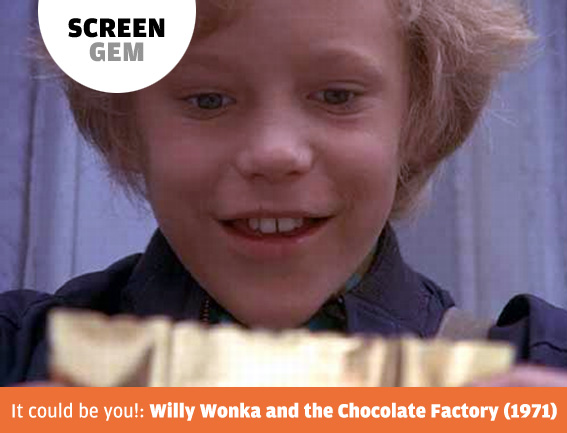
It’s not coincidental that the brilliant golden ticket needed to board the Polar Express is almost identical to the brilliant golden ticket needed to get inside Willy Wonka’s ‘non-pollutionary, anti-institutionary, pro-confectionery factory of fun’. In the 23 years between Mel Stuart’s Willy Wonka and the Chocolate Factory and Robert Zemeckis’s The Polar Express, the golden ticket was solidly established as Hollywood’s ultimate expression of that chance we all want, but so few of us ever get, to realise our greatest dreams.
Children’s stories and films frequently suggest that, aside from being unsavoury, greed and self-promotion generally go un-rewarded. The Golden Ticket tells us otherwise: Augustus Gloop gets his because he is a glutton and Veruca Salt gets hers because she is spoiled and her parents are wealthy. Had we not read the book, or seen the trailer, there are points in Willy Wonka when we would genuinely believe that Charlie will never open a Wonka bar to find that special prize. When he does, in that glorious moment when he feels himself (and, by extension, we imagine ourselves) catapulted from ordinary to extraordinary, the film delivers a lesson: life is often better for the rich, and the privileged frequently have a monopoly on opportunity – but, just occasionally, that big break can come to someone like us.
The ticket’s colour is crucial. Gold, of course, connotes wealth and therefore happiness, and – whether we dream of wedding rings or Oscars or Olympic gold medals – it is so often the colour that accompanies achievement. Roald Dahl understood this when he wrote Charlie and the Chocolate Factory and he understood it when he wrote the screenplay for Willy Wonka. In Charlie’s golden ticket, he created the perfect passport to our dreams.
I